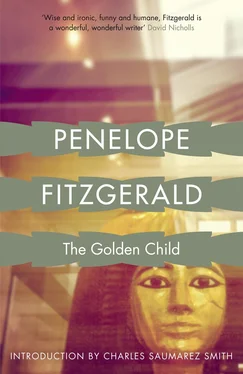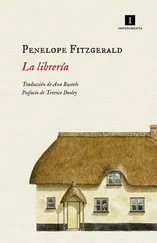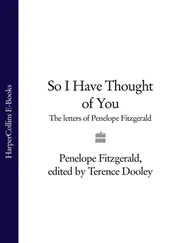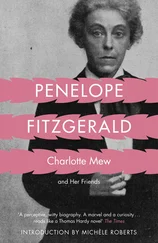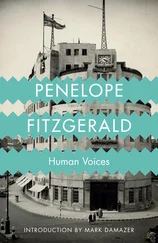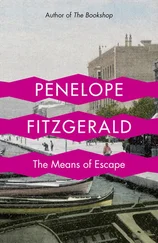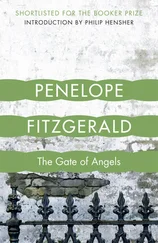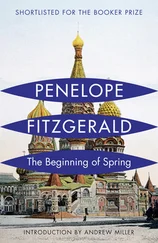Fitzgerald invented her own version of the Tutankhamun exhibition, as a show of relics of an ancient African civilisation called Garamantia, which does indeed exist (I had assumed that, as a work of fiction, it was a figment of her imagination). She invented, too, a cast of characters surrounding the exhibition. There is the elderly archaeologist, Sir William Simpkin, who lives in a private flat in the museum, kept on in the expectation that his fortune would be left to the museum director, so that the director would have his own personal fund for acquisitions and not have to pay attention to the competing interests of the keepers. There is Sir John Allison, the museum director, ambitious for himself, unscrupulous, as all museum directors in fiction are expected to be. He bears a more than passing resemblance to Kenneth Clark. There are the two secretaries, the stupendously lazy Dousha Vartarian, who worked for Simpkin, ‘curled in creamy splendour in her typing-chair’, and the director’s secretary, Miss Rank, who was an exceptionally competent person. There is the deputy head of security, left with the task of actually minding the public; Jones, the flat-footed warder of indeterminate rank and function, who is given the task of looking after the requirements of Sir William Simpkin; the Keeper of Funerary Art, Marcus Hawthorne-Mannering (one of Fitzgerald’s pupils at Queen’s Gate had been Eliza Manningham-Buller, who later became a colleague teaching history before entering MI5); a left-wing technician called Len Coker; and the almost-hero of the novel, Waring Smith, a junior exhibitions officer, who is an ingénue, impoverished, as all junior museum employees are, worried about his mortgage and his wife, Haggie, an offstage character who doesn’t like him having to work late.
It is not clear how much Fitzgerald really knew about the realities of working in the British Museum, but what she wasn’t sure of, she was easily able to invent from her knowledge of other bureaucracies, including the BBC, and from friends like Mary Chamot, a Russian émigré who had been an assistant keeper at the Tate Gallery. And she had her own experience of dealing with museum officials whilst writing her biography of Burne-Jones. She told her former publisher, Richard Garnett, that one of the reasons she wrote the book was as an act of revenge against ‘someone who struck me as particularly unpleasant when I was obliged to go a lot to museums & to find out about Burne-Jones’. However she had absorbed her raw material, she had sardonically observed the curious ways of post-war British institutions, the obsessive hierarchies, the technicians who often know far more than the specialists, the left-wing politics, and the sense of superficial busy-ness masking a wider entropy. She knew only too well, and understood and empathised with, the world of middle-class professional impoverishment, the feelings of resentment towards someone who is in any way unusual, and the ways that museum specialists bury themselves in their subject, ignoring the emotional upset of the world around them.
The Golden Child is taut, finely plotted like a thriller, richly comic, with some of the elements of exaggerated satire characteristic of a campus novel, like Malcolm Bradbury’s The History Man , published in 1975. She described it as a ‘mystery story’ and, oddly, never counted it amongst her novels.
I was working in the Victoria and Albert Museum during the 1980s. Aspects of the ways museums operated then are very recognisable, when the not-so-young and dandy museum director, Sir Roy Strong, was holding grand exhibitions to the disdain of his much more posh keepers. Reading the novel now I am struck by how admirably it catches so many of the characteristics of England in the mid-1970s (although no date is given as to when the novel is set and she herself described it as a historical novel): the sense and near enjoyment of hopeless decline, pre-Thatcherite economic irrationality, government jobs supported, but inadequately, by the state, a mirror image of the USSR.
Penelope Fitzgerald came across, to those who knew her, as highly intelligent and hopelessly vague, preoccupied by the world of the inner imagination, an enthusiastic member of the William Morris Society, passionate about art and literature. She was hostile to wealth, as she had been brought up to be by the Knoxes. Having spent much of her life marking scripts by schoolchildren, she disguised from them and her colleagues that she could write like an angel, using words poetically, constructing sentences which are descriptively precise, never conveying anything more than is strictly necessary. This reticence about her own genius partly accounts for why it took so long for the qualities of her fiction to be properly recognised and why her third novel, Offshore , was patronised even when it won the Booker Prize. Her writing reads easily and her books are not long, as if they are written rapidly, but they have an extreme, defined and reticent precision in their use of language.
It was not necessarily a bad thing for her fiction that she spent so much of her adult life unable to find the time to write, bottling up her annoyance with human imperfections, including her own, and observing the world with her sharp views of pomposity.
I only encountered Penelope Fitzgerald once.
It was in 1996, towards the end of her life, when she won the Heywood Hill Prize. The prize-giving was on the lawns of Chatsworth and was combined with an annual meeting of all the mayors of Derbyshire. A colliery band played. The sun shone. Noel Annan gave a speech of great eloquence, placing the writing of her most recent (and last) novel, The Blue Flower , within the realms of European humanism.
In The Golden Child , Fitzgerald was at the beginning of that late-flowering writing career.
Charles Saumarez Smith
2014
1
THE enormous building waited as though braced to defend itself, standing back resolutely from its great courtyard under a frozen January sky, colourless, cloudless, leafless and pigeonless. The courtyard was entirely filled with people. A restrained noise rose from them, like the grinding of the sea at slack water. They made slight surges forward, then back, but always gaining an inch.
Inside the building the Deputy Director, Security, reviewed the disposition of his forces. The duties that led to congratulation and overtime had always in the past been strictly allocated by seniority, as some of the older ones were still, for the hundredth time, pointing out, grumbling that they were not to the fore. ‘‘This is a time when we may need force,’ the DD(S) replied patiently. ‘Experience, too, of course,’ he added conciliatingly. The huge bronze clock in the atrium, at which he glanced, had the peculiarity of waiting and then jumping forwards a whole minute; and this peculiarity made it impossible not to say, Three minutes to go, two minutes to go. ‘Three minutes to go,’ said DD(S). ‘We are all quite clear, I take it. Slight accidents, fainting, trampling under foot — the emergency First Aid posts are indicated in your orders for the day; complaints, show sympathy; disorder, contain; increased disorder, communicate directly with my office; wild disorder, the police, to be avoided if possible. Crush barriers to be kept in place at all entries at all times. No lingering.’
‘Sir William doesn’t approve of that,’ said a resolutely doleful voice.
‘I fail to account for your presence here, Jones. You have already been drafted, and your place, as usual, is in Stores. The real danger point is the approach to the tomb,’ he added in a louder voice; ‘that’s been agreed, both with you and higher up.’ The bronze hand jumped the last minute, both inside and on the public face outside the building, and with the august movement of a natural disaster the wave of human beings lapped up the steps and entered the hall. The first public day of the Museum’s winter exhibition of the Golden Child had begun.
Читать дальше
